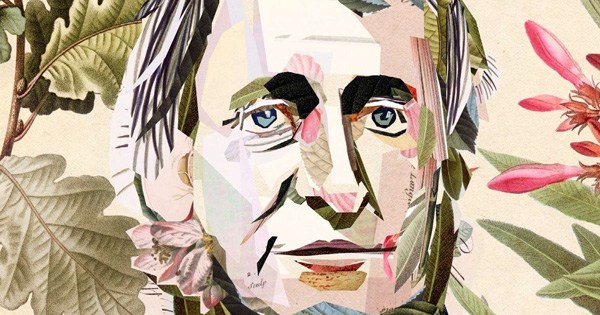A century before Einstein bequeathed his famous dictum that “imagination is more important than knowledge” and Richard Feynman delivered his iconic flower-monologue about knowledge and mystery, not a scientist but a Transcendentalist philosopher-poet, (public library) — that timeless trove of wisdom on the myth of productivity, the greatest gift of growing old, the sacredness of public libraries, the creative benefits of keeping a diary, and the only worthwhile definition of success.

In December of 1851 — only half a century after an amateur scientist classified the clouds with Goethe’s help — thirty-four-year-old Thoreau writes:
I witness a beauty in the form or coloring of the clouds which addresses itself to my imagination, for which you account scientifically to my understanding, but do not so account to my imagination.
It is what it suggests and is the symbol of that I care for, and if, by any trick of science, you rob it of its symbolicalness, you do me no service and explain nothing. I, standing twenty miles off, see a crimson cloud in the horizon. You tell me it is a mass of vapor which absorbs all other rays and reflects the red, but that is nothing to the purpose, for this red vision excites me, stirs my blood, makes my thoughts flow, and I have new and indescribable fancies, and you have not touched the secret of that influence. If there is not something mystical in your explanation, something unexplainable to the understanding, some elements of mystery, it is quite insufficient. If there is nothing in it which speaks to my imagination, what boots it? What sort of science is that which enriches the understanding, but…
The post Thoreau on Writing and the Splendors of Mystery in an Age of Knowledge appeared first on FeedBox.